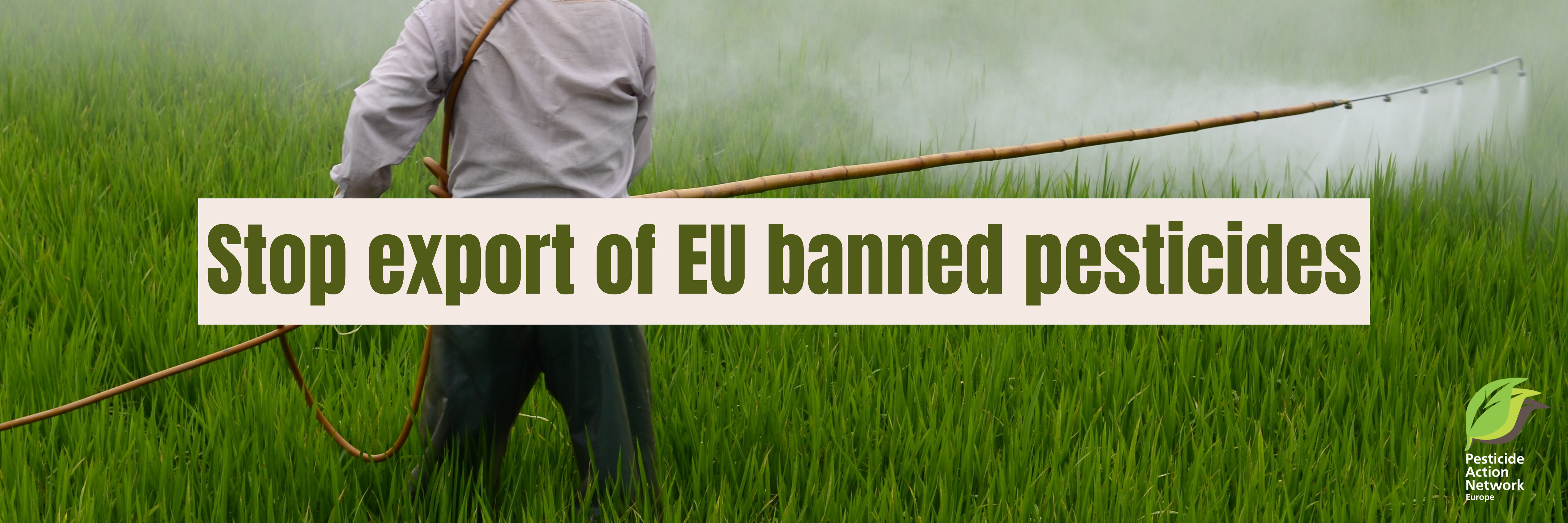
The EU has banned the use of a number of pesticides that do serious damage to human health and the environment. However, companies remain free to produce these pesticides in the EU for export. This puts human health and the environment in those countries at risk. It also creates unfair competition for European farmers. Consumers are exposed to the residues of the banned pesticides in imported food. With a broad coalition of farmers -, environmental- and north-south organisations from all over the world we campaign to end this double standard and stop the export of banned pesticides. Substances too toxic to use here are too toxic everywhere.
EU institutions have all recognised that there is a double standard here. If the EU bans the use of a pesticide, it should not allow companies to keep manufacturing them for export. It should also not accept the import of food contaminated with these substances. in 2020 the European Commission committed to end this practice and to set measures to ensure that “hazardous chemicals banned in the European Union” are no longer “produced for export”.
As expected, EU-based pesticide manufacturers reacted strongly, arguing that the proposed measures would generate significant job losses and would harm the sector’s competitiveness. Furthermore, they claimed that a ban would have no positive effect on importing countries. Neither of these claims are true.
Consequences of EU pesticides export ban?
With a coalition of organisations we investigated the effects of an export ban. We conclude that stopping the export of EU-banned pesticides would neither endanger employment nor burden the EU economy. At the same time, a ban would positively impact people’s health and the environment in importing countries.
Publications and news
- Protest in front of the EU Commission, March 2025 (link to blog with images)
- The return of EU-banned pesticides: dangerous residues found in imported food - PAN Europe, February 2025
- EU ban on imported food with hazardous pesticides: an urgent health measure, not a trade war issue PAN Europe, February 2025
- Report: EU pesticides export ban: what could be the consequences? NGO coalition, April 2024
- Stop the export of EU-banned and hazardous pesticides - input PAN Europe for EU consulatation, July 2023
- Joint Statement: 326 NGOs and Trade Unions demand the end of EU's export of banned pesticides and other hazardous chemicals - December 2022